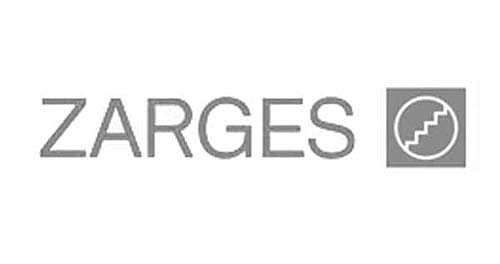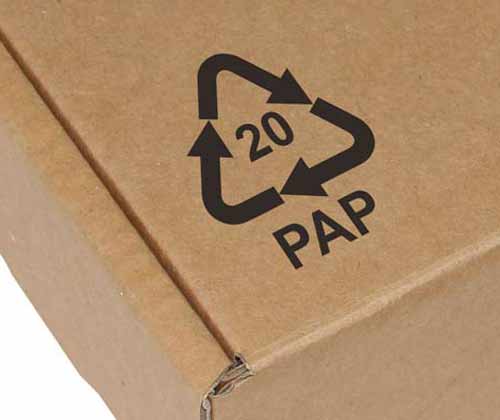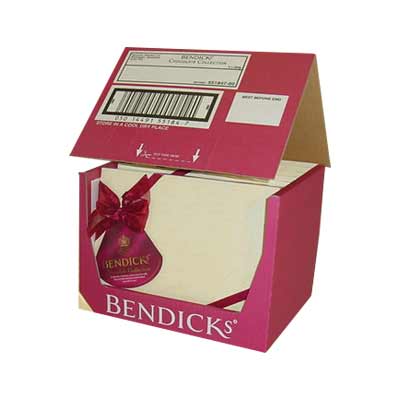Meeting large retailer requirements
Retail ready packaging that benefits retailers, shoppers and brands
If large retailers stock your products, or you are looking to get them listed, knowing the five easies of retail ready packaging is vital.
The five easies of retail ready packaging (RRP) were initially developed by Walmart. The idea defines the qualities that retail ready packaging should have, these being easy to open, replenish, shop, dispose of or recycle, and allowing easy identification of products.
This guide fully explains each of the five requirements, allowing you to ensure you comply with stockists’ requirements and leverage your retail ready packaging as a competitive advantage.
Contents
Retail ready packaging
What is retail ready packaging?
Retail ready packaging (RRP), also interchangeably known as shelf ready packaging (SRP), is used for shipping products to stockists and retailing them in store. Store staff simply place the packs on the shelf and remove a perforated section, revealing the products. Retail ready packaging also helps identify the products within, keeps them organised, and allows for easy replenishment too.
Corrugated packaging is by far the most common form of retail ready packaging. It provides suitable protection in transit, is cost-effective, can carry branding, is lightweight and easy to handle, and can be printed with branding, price information and promotions.
As a result, custom-printed retail ready packaging is commonplace across a vast range of products and SKUs (stock-keeping units). Packaged food products, beverages, cleaning and household goods and even health and beauty are commonly shipped and sold in retail ready packaging.

What are the 5 "easies" of retail ready packaging?
For brands and their packaging providers to make packaging genuinely retail ready, it must adhere to the standard requirements known as the five easies. These requirements are also closely linked to the main advantages of retail ready packaging.
The five easies of retail ready packaging, effectively the qualities that the packaging should possess, are:
- Easy to identify (products/brand).
- Easy to open.
- Easy to replenish or stock.
- Easy to shop.
- Easy to dispose of and recycle.
Easy identification of products
Quick visual identification of products for shoppers and retailers
The first requirement of retail ready packaging is that it is easy to identify the products it contains.
It may sound obvious, but it is vital that shoppers can quickly identify and find your products in crowded retail environments. With a range of other brands – your competitors – vying for attention, ensuring your retail ready packs are visually appealing, eye-catching and carry consistent branding can significantly aid sales.
However, you should also consider how retailers use the packs before making it onto the shelves. Having store staff quickly and easily locate your products is crucial for efficiently restocking shelves. Essential information, such as product name, brand, and barcode, should be prominently displayed on at least two sides of the box or carton.
Ultimately, your retail ready packs can help staff to minimise errors and time wastage.
Easy opening
Make your restocking process quicker
Retail-ready packaging should prioritise efficiency. The simpler the opening mechanism, the quicker stores can get your products onto shelves and maintain product availability.
As such, most shelf-ready packaging features perforations or tear strips to quickly remove sections of the pack when opening.
Finger holes on the side and front panels, accompanied by clear graphic instructions for quick reference, are also helpful. Avoiding tape on the perforation and eliminating strapping around the carton or box further streamline the opening process.
This design eliminates the need for staff to use tools like knives or carton cutters to tear perforations. This in turn significantly reduces (and can even eliminate) the potential for accidental injury.

Easy to replenish stock
Ongoing product availability in store
It is incredibly inefficient to have retail staff placing individual items onto shelves, but thankfully retail ready packaging can help to avoid this scenario.
Retail ready packs often utilise a tray or base that allows multiple products to be placed on the shelf in one go. This feature not only reduces the time required by staff to replenish shelves, but also provides benefits for shoppers too.
Shoppers are less likely to encounter staff restocking shelves, potentially limiting their access and blocking their view of available options. It also means it is easier to keep shelves full, boosting sales, improving choice for consumers and preventing empty spaces for retailers.
Easy shopping
Advantages of retail ready packaging for consumers
It is crucial to consider the ease with which customers can locate and select products. Retail ready packaging can play a vital role in this.
As such, product descriptions must be visibly clear, with units of measure easily discernible. Consumers should also be able to retrieve (and potentially return) products from shelves effortlessly without causing any damage to the packaging.
Besides this, the use of bold print, consistent branding, and straplines/slogans can all help draw consumer attention to your products. Prioritise quality presentation with a focus on visual branding.
A related point to note here, in terms of driving sales, is the use of POS (point of sale) stands, such as cardboard FSDU (free standing display units). These are stands, typically manufactured using corrugated cardboard, that are placed on aisle ends or areas of high footfall to drive sales of a specific product (or range of products). They are ideal for product launches, seasonal promotions or range extensions.
Smaller retail ready packs can even be compatible with POS displays. But even if they are in separate parts of a store, it is vital to maintain consistent branding and appearance across all of your packaging.
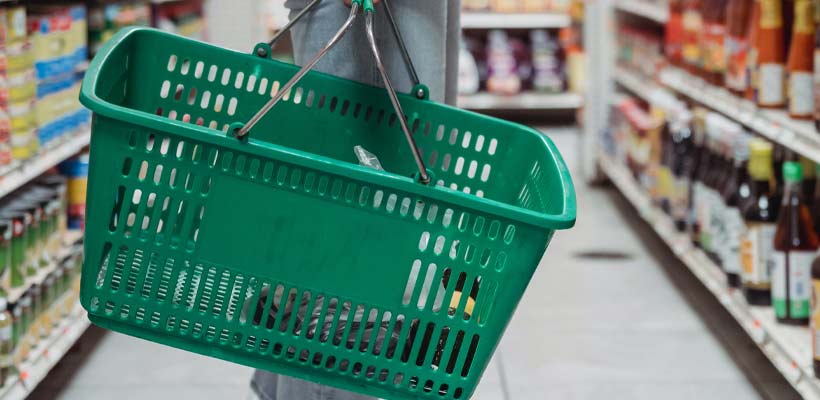
Easy disposal and recycling
Reduce your environmental impact
The final consideration for your retail ready packaging is how easy it is to dispose of – and ideally recycle – at the end of its life.
Disposal should be quick, straightforward, and require minimal labour, enabling a single employee to flatten or fold the packaging in preparation for recycling efficiently.
For any retail displays intended for reuse, the packaging should be easily foldable to conserve space when not in use.
It is also essential for packaging designers to minimise material use (without compromising any of the other requirements) to lessen environmental impact. Using FSC-certified material is another way to ensure your retail-ready packs minimise environmental impact. Well-designed packs can even help reduce CO2 emissions through improved transport efficiency.
Summary
Using retail ready packaging at your business
If your retail ready packaging does not meet the five easy guidelines, you may find large retailers are reluctant to list your products in their stores (if at all).
But by developing the right shelf ready packaging, you’ll increase sales from retailers, reduce their labour costs, minimise environmental impact and improve the shopping experience for consumers.
At GWP, we have over 30 years of providing retail and shelf ready packaging to a vast range of businesses. Alongside ensuring your packaging meets your stockist requirements, we have a track record of designing cost-effective, environmentally friendly retail packaging that provides your business and brand with a genuine competitive advantage.
So, if you would like further information and advice on retail ready packaging, including how yours can adhere to the five easies, please do not hesitate to get in touch.
Share this article
Further reading


About the author

Clirenda joined GWP as a structural designer in 2021, bringing extensive experience from roles at SCA Packaging (now Saica) and Smurfit Kappa.
Featured Products
View the packaging in this guide...
Get in touch
Here to help
Related Guides
Free PDF download
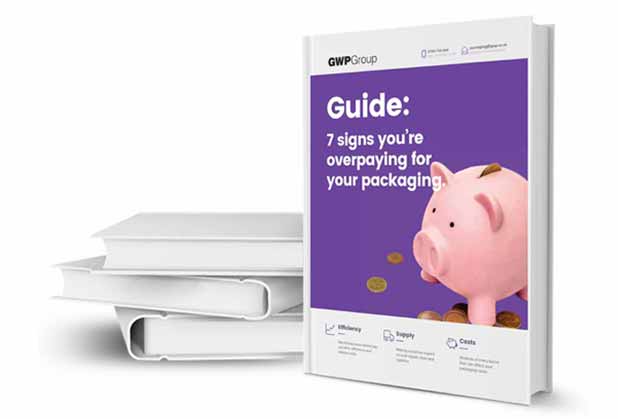
7 signs you're overpaying for your packaging
Get your free guide identifying the tell-tale signs that you are paying too much for your packaging, and how to stop it.







